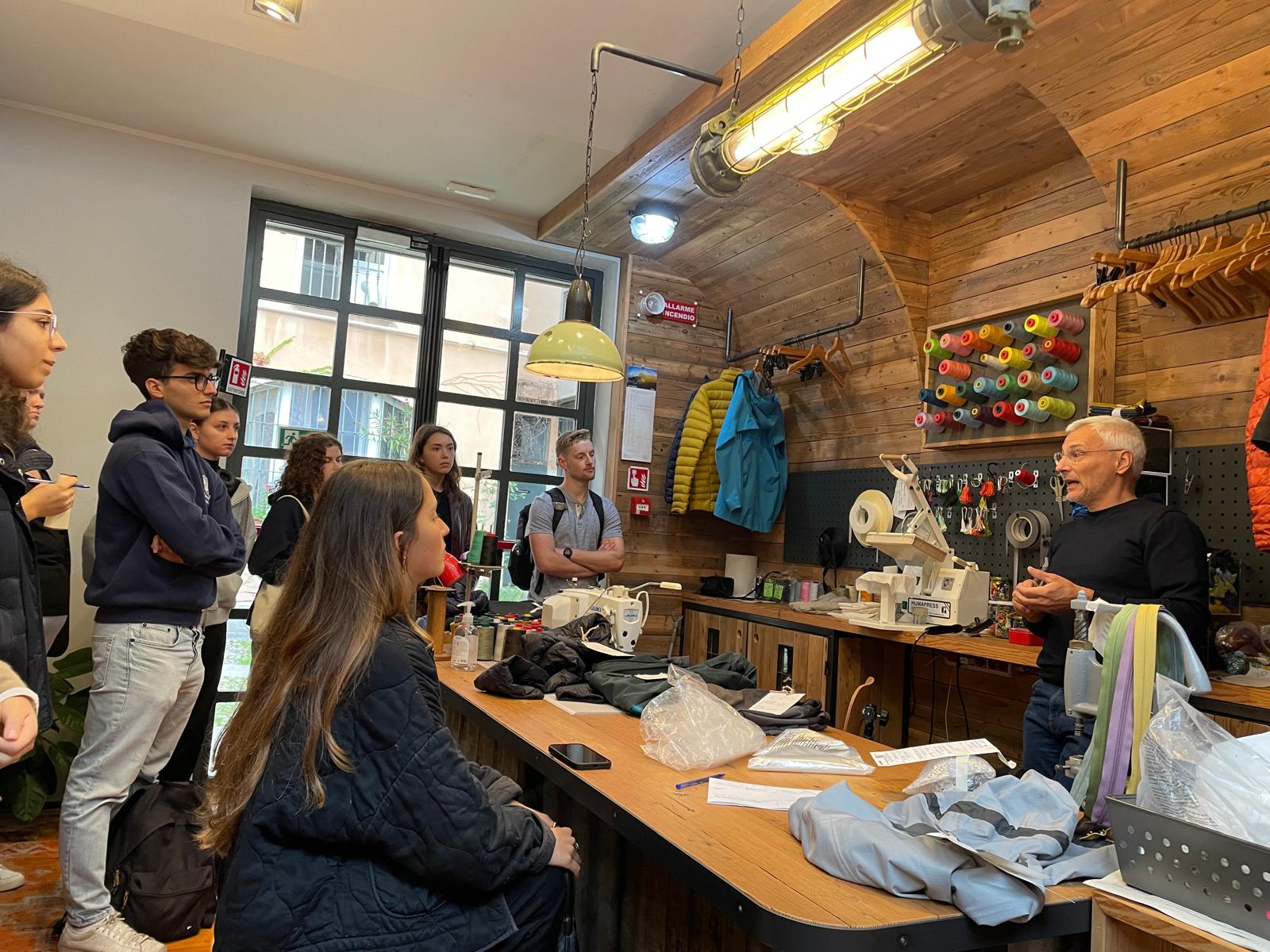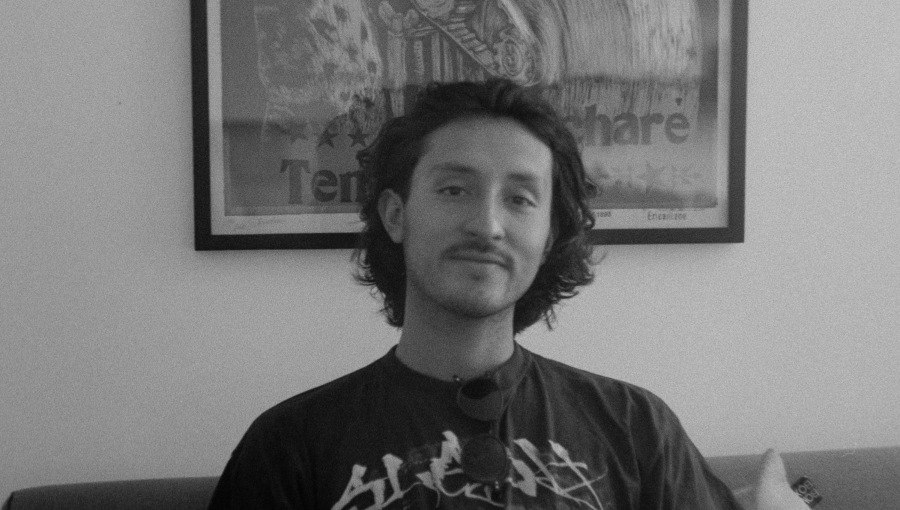JCU Students Discover Milan’s Corporate Sustainability Scene
On October 25th, a group of students from John Cabot University traveled to Milan for an organized tour of some of the city’s most sustainable companies.
The trip, organized by JCU’s Career Services, took both degree-seeking and study-abroad students from the University of San Diego, Ball State University, Loyola University Maryland, Northeastern University, and Miami University through a hands-on introduction to two companies’ corporate approaches to sustainability: Patagonia and Zambon.
Patagonia and Zambon’s Sustainable Missions
In the Patagonia store, students listened as Fabio Zardini, Patagonia’s Italy Country Manager, explained the company’s mission. “We’re not a fashion company and we’re not trendy,” he said, establishing Patagonia’s ethos as a unique commitment to environmental responsibility. For Patagonia, Zardini explained, the purpose is non-negotiable. The company is guided by principles that founder Yvon Chouinard established — such as Patagonia’s decision to stop using pesticide-laden cotton in the early 1990s, until an organic option was sourced, even if it meant halting production altogether.
“Fabio is the speaker I’ve seen who comes closest to Steve Jobs,” remarked Isaac Rogers, a student from Ball State University. As Isaac and his peers listened, Zardini’s passion and commitment underscored Patagonia’s approach. In an era of fast fashion, Patagonia stands apart not only for its durable, utilitarian designs but also for making sustainability its unyielding standard.

Next, the students went to Zambon, an Italian pharmaceutical company whose innovations emphasize health and sustainability.
Zambon’s headquarters, a modern space designed to foster creativity and collaboration, is a microcosm of sustainability goals. The students sat down with Andrea D’Alessandro, President of OpenZone, and Federica Destro, external innovations and community manager at Zambon, who delved into the work of achieving and maintaining B Corporation (B Corp) certification — a standard that requires stringent benchmarks in social and environmental performance, accountability, and transparency.
D’Alessandro explained the financial and logistic challenges Zambon faces in embracing the B Corp model, adding that “achieving sustainability means moving forward with eyes wide open” to market realities and potential trade-offs.
As Destro spoke about the complexities of sustainability reporting, students began to realize the scope of environmental responsibility in the pharmaceutical sector. Jillian Crowder, a student from Loyola University Maryland, said, “Seeing their commitments firsthand inspired me to think critically about sustainability practices and their impact on domestic and international shareholders.”
New Perspectives on Corporate Sustainability
Throughout the visit, the students encountered the reality of corporate sustainability — the setbacks, the pivots, and the long-haul nature of making it work. In Zambon’s case, sustainability was not simply a polished marketing message but a strategic decision that had to weather challenges and require compromise, all while responding to industry demands. The students left Milan with concrete examples of leaders like Zardini, D’Alessandro, and Destro, and a deeper understanding of sustainability as a multi-faceted, ever-evolving commitment.
The company visit, guided by the Director of JCU’s Career Services Center, Michèle Favorite, provided more than a glimpse into corporate life. It was a chance for students to witness the complexities of sustainable business and to imagine how they, too, might contribute to a future that redefines success through a responsible, impactful approach.
(Alyssa De La Cerda)





